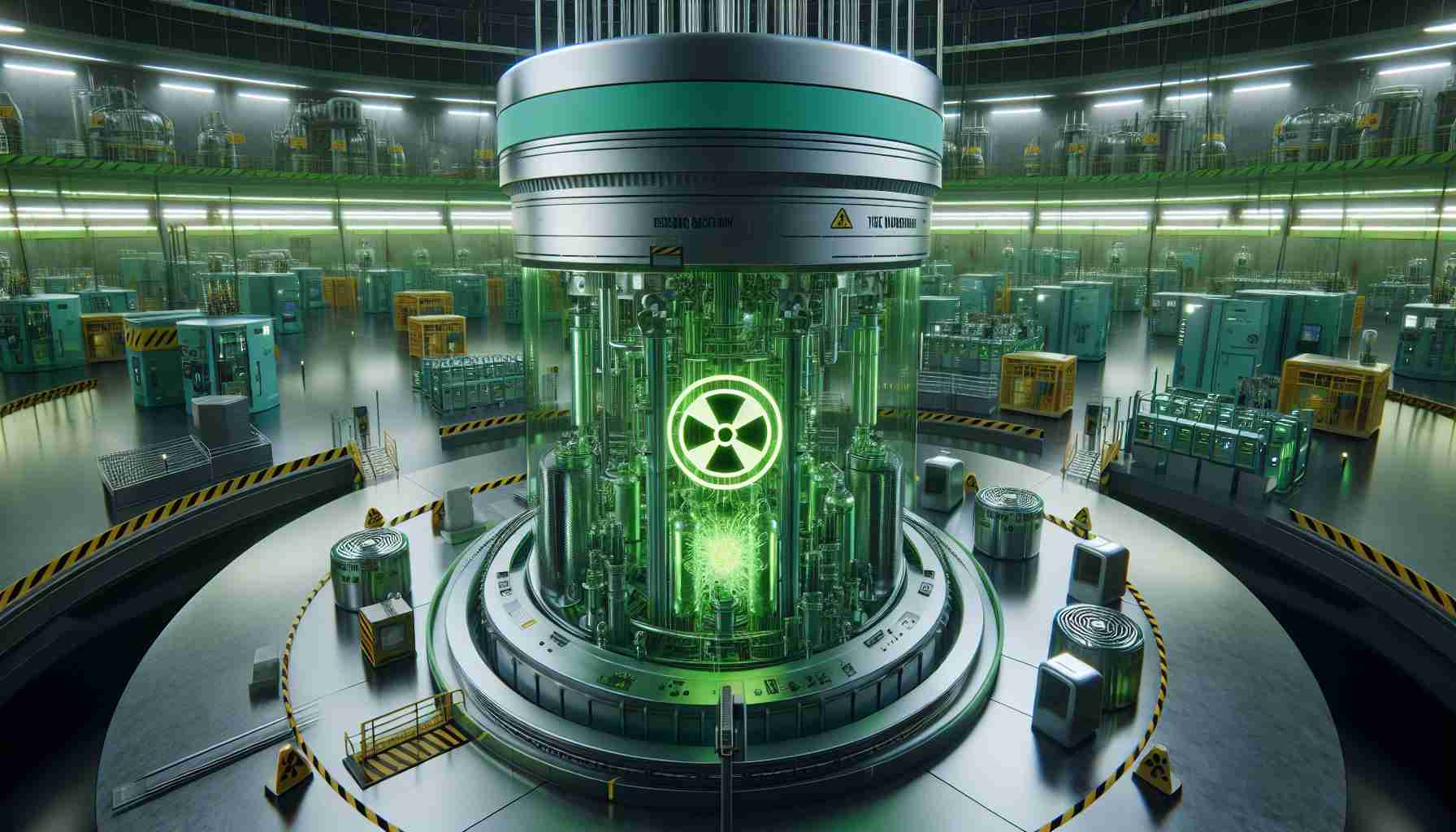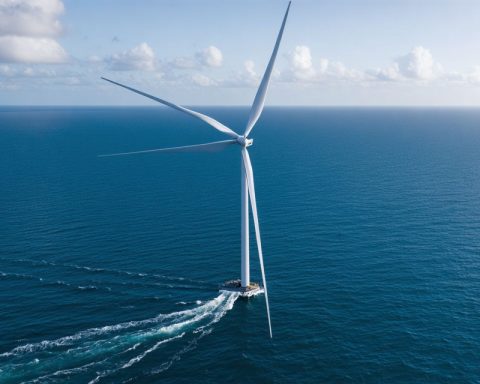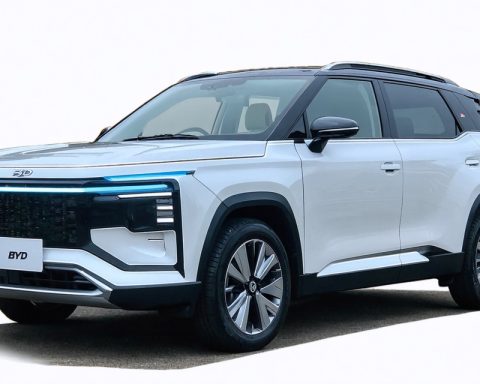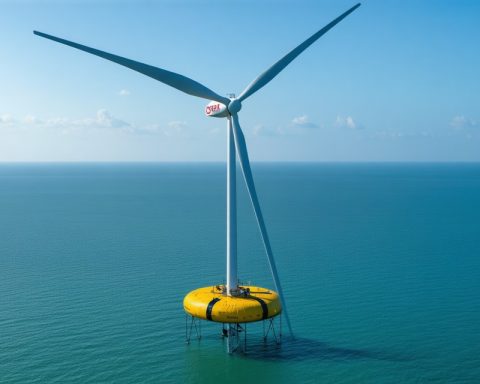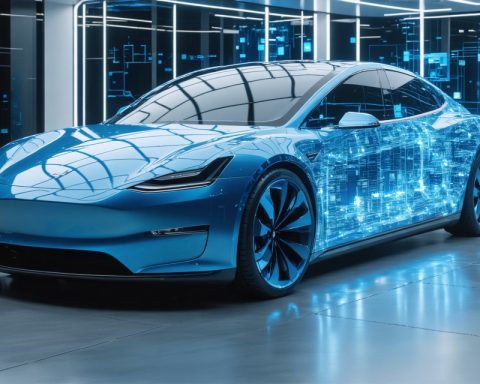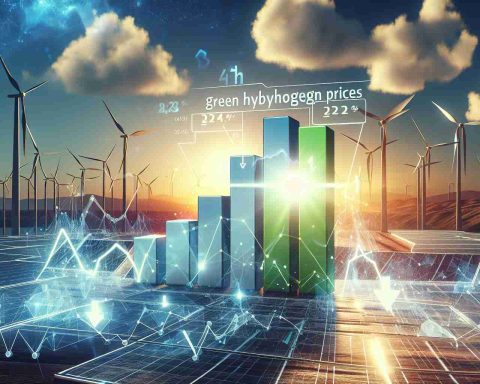In a world grappling with energy demands that outpace power grid capabilities, a groundbreaking shift towards nuclear energy solutions is emerging. First Hydrogen is poised to transform the green hydrogen landscape by tapping into the potential of small modular reactors (SMRs), which promise a stable and scalable supply of electricity.
These compact reactors, a fraction of the size of traditional nuclear power plants, offer a low-carbon footprint alternative that aligns with global sustainability goals. Positioned as the cornerstone of future energy infrastructure, SMRs are celebrated for their ability to produce significant electricity amounts with negligible greenhouse gas emissions.
Amidst a burgeoning interest in clean energy alternatives, several firms are eyeing the expansion of nuclear power to fuel their energy-intensive data centers. This ambition coincides with tech giants’ drive to secure affordable energy sources for the rapid development of generative AI technologies, presenting nuclear power as a commercially viable solution.
First Hydrogen, driven by a vision to revolutionize hydrogen production, plans to strategically deploy SMRs in areas experiencing power scarcity. The green hydrogen generated will serve as a clean fuel source for refueling stations, marking a pivotal step towards sustainable transportation infrastructure.
This initiative is a testament to First Hydrogen’s commitment to pioneering transformative energy solutions. By integrating SMRs into their strategy, they aim to fortify the clean energy ecosystem, ensuring a resilient and sustainable future.
As industry leaders pay close attention, nuclear energy’s role in bolstering innovative energy solutions underscores a promising avenue for addressing the urgent need for reliable, eco-friendly power.
The Hidden Impact of Small Modular Reactors: Revolutionizing Energy and Beyond
As the world increasingly turns its attention to clean energy solutions, the rise of small modular reactors (SMRs) signifies not just a technological advancement, but a potent catalyst for societal change. While the initial focus has been on their potential to transform green hydrogen production and power data centers, several other implications of SMR deployment are impacting communities, economies, and global policies.
What Changes Can SMRs Bring to Local Economies?
One of the most profound effects of deploying SMRs is their potential to invigorate local economies. Unlike traditional nuclear power plants, SMRs require less infrastructure and are more flexible in terms of location. This better suits rural or remote areas with abundant natural resources but limited power supply, paving the way for new industries, jobs, and economic growth. Introducing SMRs could significantly boost local manufacturing, maintenance services, and related sectors, leading to broader economic revitalization.
Energy Independence and Geo-Political Shifts
Countries embracing SMR technology may experience shifts in their energy independence. Nations traditionally reliant on fossil fuel imports can reduce their vulnerabilities by integrating SMRs into their energy strategies. This shift not only has the potential to alter geopolitical dynamics but also encourages countries to invest in domestic technological advancements and infrastructure.
SMRs and Environmental Controversies
Despite the promising outlook for SMRs, certain environmental controversies persist. Although SMRs produce negligible greenhouse gas emissions, their implementation does raise questions regarding nuclear waste management, long-term sustainability, and regulatory frameworks. Critics argue that without clear policies and waste disposal solutions, the widespread deployment of SMRs might pose environmental and safety risks, potentially leading to hesitancy in adoption.
Could SMRs Reshape Future Urban Landscapes?
An intriguing proposition is the integration of SMRs into urban developments. This could revolutionize how cities manage their energy grids by allowing localized, efficient power sources. However, potential safety concerns and public perception of nuclear energy might delay such integration, necessitating robust community engagement and education efforts to garner support.
Are SMRs the Solution to Industrial Energy Demands?
The robustness of SMRs provides an answer to the energy demands of industries beyond tech. Heavy industries, such as steel and cement production, which are notoriously energy-intensive and hard to decarbonize, could benefit from SMR-generated power. This shift not only supports industrial sustainability but also encourages other sectors to explore nuclear energy as a feasible clean power source.
Intriguing Facts and Future Enthusiasm
Did you know that SMRs can potentially use existing nuclear waste as fuel? This capability not only reduces waste stockpiles but also transforms an environmental liability into a resource. Additionally, countries such as Canada and the UK are spearheading SMR projects, positioning themselves as leaders in this innovative energy landscape.
In conclusion, while First Hydrogen’s initiative is a clear demonstration of SMRs’ potential, the broader adoption of these reactors could significantly alter socio-economic and environmental landscapes. The impact of SMRs on energy strategies, local economies, and industrial demands represents a crucial turning point in the quest for a sustainable future.
For more information on energy innovations and nuclear technology, consider visiting the World Nuclear Association at World Nuclear Association.
